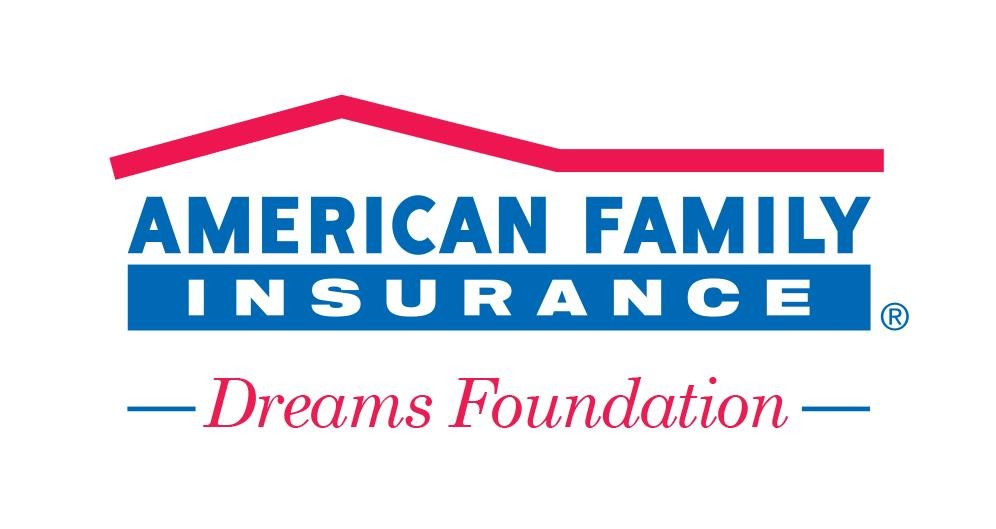The general car insurance is determined on an individual basis. Despite this, sample rate data shows that teen drivers are often subjected to the highest premiums for their auto insurance. Young drivers who have recently gotten their licences are typically inexperienced behind the wheel.
As a result, they are statistically more likely to be involved in collisions than drivers of any other age group. Because of the statistics that indicate teens to be high-risk drivers, purchasing cheap car insurance may be rather pricey for young people.
The question now is, how do you keep expenses low? Being young has a lot of advantages, but it might make it difficult to find affordable car insurance. According to the available data, teens are the demographic that poses the greatest threat to the general car insurance. Even while there are some decent and cautious drivers, there are still others that pose a significant risk.
According to the Association of British Insurers, although drivers between the ages of 17 and 24 make up just 7% of licenced drivers in the United Kingdom and travel fewer miles than the national average, they are involved in 24 percent of all fatal car accidents (ABI). Even the most basic coverage for a small car may be rather pricey.
The only way to maintain a clean driving record and gradually build up a no-claims discount is to continue to drive cautiously. However, even though the first few years of the general car insurance will be the most expensive, there are still methods to bring the cost down. The first step is to decide on a car that has a low power output, a low market value, and that belongs to a low insurance category.
The next step is to take advantage of one or more of the strategies that minimize the cost of auto insurance for everyone: parking your vehicle off the street if at all possible; reducing your annual miles; or getting a larger deductible.
What is Car Insurance?
The general car insurance is a means to financially protect yourself if you are in a car accident or suffer a covered loss due to fire, theft, vandalism, or an act of nature. Some cheap car insurance policies only apply if you are at fault in an accident, but others pay even if you are not at fault. Some kinds of coverage cover medical expenditures, while others cover property or vehicle damage.
According to the Insurance Data Institute, the general car insurance claims averaged $22,734 for personal injury and $5,314 for property damage. One of the most important things to remember, regardless of the kind of coverage, is that the coverage limit you select is the maximum amount your policy will pay out. Any sum in excess of that is your responsibility. Before making any final decisions, experts advise you to carefully study your policy. That way, you’ll have a clear picture of what you could be liable for.
How does car insurance work?
How does the general car insurance work? We are aware that this is a frequently requested question. Understanding how car insurance works is essential if you want to be covered every time you go behind the wheel. To ensure you have the correct amount of insurance for your car, start by locating a reputable insurance provider. If you are in a car accident, your the general car insurance may pay for your injuries or property damage if you make a claim.Finding the best car insurance is easier than you think, especially if you do your research online. In fact, you may investigate coverages, obtain an estimate, and purchase cheap car insurance all from the comfort of your own home. Before you begin, it is useful to know the answers to the following questions:
- What kind of car do you have?
- How long have you been driving?
- Who will be driving your car?
- How many miles do you drive in a year?
- Where do you call home?
- Were there any gaps in your car insurance coverage?
Who is behind the Driving?
It may be tempting for a parent or other older person to pretend that they are the primary user of a teenager’s car in order to reduce the amount of money spent on insurance premiums and then add the teenager as a named driver on the policy. But if the younger person really drives the car often, this is against the law. Insurers refer to this practice as “fronting”
If an insurer learns that a person has been guilty of fronting, the policy of that person might be ruled void, and that person could be required to pay any expenses that are incurred as a consequence of an accident. It is also possible for this to result in criminal convictions.
On the other hand, if the young driver is able to insure their own car, adding an older driver to the policy who is listed on it might result in a lower premium since the risk is being divided among more people. Continuing with the 18-year-old who drives a Fiat 500, if a parent is added as a named driver, the premium can go down from an average of £1,402 to an average of £1,297.
What is a Black Box Warning
It is generally agreed that purchasing telematics auto insurance coverage, sometimes known as “pay how you drive” or “black box warning” the general car insurance, is the most effective approach for young drivers to cut their insurance premiums. Telematics policies use the Global Positioning System (GPS) as the main way to figure out how a car is being driven.
After gathering this information, insurers will use it to make conclusions regarding risk based on a driver’s track record. When determining a driver’s premium, this information is taken into consideration along with other standard risk variables like their age and the location where they live.
In most cases, drivers who are considered to be “safe” will pay lower rates than drivers who are considered to be “less safe.” Black box insurance is going to be the ideal choice for young drivers who are careful behind the wheel, despite the fact that many young people are opposed to it because they believe it will be used to spy on them.
There are the general car insurance companies that focus specifically on providing coverage for young drivers. One of the companies that has been around the longest, Marmalade, provides a specialised named-young-driver insurance policy. It provides a telematics policy for driving a parent’s or grandparent’s car (a tag and an app identify who’s driving), and it also offers a telematics policy for young drivers to use in their own car when they are the primary driver.
6 Best Cheapest Car Insurance for Teens and Young Drivers
Check out best affordable Car Insurance companies for Teen and young Drivers in 2023:
#1. USAA

If you are eligible for membership in USAA, your new driver may be eligible for discounts for being a good student or a member of the military, as well as for completing an approved defensive driving course or additional driver training. These discounts can help you save money on your auto insurance premiums.
There is a discount for being a responsible driver who keeps a clean driving record, and there is another reduction for driving a newer car. There are additional reductions available for young teens who log a low number of kilometres driven each year or keep their vehicle while attending college to qualify for these savings. In addition, there is a possibility that you may be eligible for discounts if you remain a customer of USAA for a number of years or if you have many insurance policies with the organisation.
#2. Geico

Discounts on driver education or defensive driving courses may be available to teens who meet certain requirements. A quality discount for students offers a savings of 15%. The good driver discount for going five years without an accident results in a 22 percent savings. Geico provides a 15% discount to families whose teenagers or teen students are serving in the armed forces. By taking advantage of the discount for multiple vehicles, the household could save up to 25%. Geico offers a multi-policy discount; however, the amount you can save depends on the policies you have.
#3. Nationwide

Nationwide offers an excellent student discount to drivers between the ages of 16 and 24 who maintain a grade point average of B or better. However, the insurance provider does not indicate how much of a discount the student would receive. There are discounts available for drivers who have not been involved in an accident or received a significant traffic citation for a period of five years.
These discounts are independent of the safe driver discount. When you combine your home and vehicle insurance policies with Nationwide, you might save an average of $646 per year by doing so. You can also talk to a Nationwide agent about discounts available through the SmartRide program, which is based on how you use your car.
#4. State Farm

State Farm provides “Drive Safe & Save,” the name of a tracking service that State Farm provides; nevertheless, the insurance provider does not elaborate on the possible savings. Drivers under the age of 25 and new drivers are eligible for the Steer Clear discount, which allows them to save up to 15% after three years of not being involved in any accidents or driving offences for which they were at fault.
You may also qualify for a discount with State Farm if you have had a claim-free history with the company for a period of three years or if you are a new customer. Check out the excellent student discount, which can be up to 25% off for students under the age of 25, as well as the driver training discount, which is available to drivers under the age of 21.Both of these discounts can help you save money right away.
#5. American Family Insurance

If you’re a younger client, you’re eligible for various different savings that American Family offers exclusively to you. Excellent student discounts, a teen safe driver discount, and a discount for drivers under the age of 25 who volunteer 40 hours per year at a nonprofit organisation are some examples of these types of savings opportunities.
You should be aware that in order to get additional information about how much money you would actually save, you will need to speak with a representative. In addition, American Family has a tracking program known as KnowYourDrive, which may earn you savings of up to twenty percent. Other incentives include a low mileage discount for accumulating fewer than 7,500 miles per year; a good driving discount (discuss with an agent for details); discounts for multiple vehicles; and discounts for bundling with another type of insurance. The low mileage discount can be earned by driving less than 7,500 miles per year.
#6. Farmers

For farmers, it is a bit more complicated due to the fact that the discounts provided by this organisation differ from state to state. Farmers Insurance customers, on the other hand, can get discounts for things like safe driving and getting more than one policy from the company.
How to Make an Auto Insurance Claim
If your car happened to be in an accident or has been damaged in any other manner, you should tell your the general car insurance provider as soon as possible. It will appoint a claims adjuster to examine the damage and calculate how much the insurer is required to pay you under your policy. (You can contest the amount if you disagree with it.)
Inquire with your insurer about the information required to complete your claim. It could, for example, ask you to transmit images of your damaged car by SMS, email, or the insurance company’s app. You should also keep all of the paperwork, such as a police report and a receipt, if you have to pay to have your car towed. If another motorist was involved, you should contact your insurer with the driver’s name and insurance details.
Your insurance may have a list of authorized repair shops with whom it works, but you are free to pick your own. When you have your car fixed, your car’s insurance company will either reimburse the shop directly or refund you if you pay. You will be liable for meeting your policy’s deductible in any case.
Also Read: What to do if Car Insurance Claim is Rejected?
The general car insurance for a limited time only!
There are a lot of young drivers out there who might not require annual insurance coverage, and this is where the expanding market for temporary or pay-by-the-mile car insurance comes into play. For instance, it’s possible that the majority of young adults will only wish to use a car while they are at home and not attending college or university. When it comes to the Pay as You Go insurance coverage that Marmalade offers for a parent’s car, the company employs a black box.
You begin with 500 miles, and when there are just 50 miles left, you arrange for an automatic top-up of 100 to 500 miles. Unused miles have a shelf life of one calendar year. The base price for 500 miles is £175, and additional miles start at £18 each. The driver is still eligible to get the no-claims bonus for the year’s lack of claims. Go Shorty is another firm that provides time-based the general car insurance for drivers ages 18 to 75, with coverage options ranging from one hour to 28 days to drive other people’s cars.
Why Is It Necessary for Teens to Have the general Car Insurance?
To put it another way, that’s the law. Auto insurance is required in the majority of states. Having it guarantees that you will be compensated in the event that you are injured as a result of being struck by another driver, and that it will also compensate the other driver in the event that you cause an accident.

The minimum the general car insurance requirements established by the laws of your state dictate the quantity and kind of coverage for your insurance that you are required to have. Insurance will reimburse you (or the other driver) for the costs of medical care and injuries, damage to vehicles and other property, and other financial losses that come with an accident.
Theft, vandalism, and other perils, such as floods and fires, are all protected under the umbrella of a comprehensive car insurance policy, which protects policyholders from financial loss. At a bare minimum, when you add a car to your policy for your teen to drive, that vehicle has to have all of the protection that is mandated by the state in which you live.
Even if your teen will not be receiving a car of his or her own but will be driving a vehicle that is owned by another member of your family and is already covered by insurance, you will still be required to add your teen to your policy. This is because insurance policies cover the driver as well as the car, and the level of risk the driver presents determines how much the premium will be.
From the point of view of your auto insurance provider, every moment that your vehicle is out on the road is subjected to an additional risk, and the fact that you have a young driver operating the vehicle rather than an adult with more driving experience makes the situation even riskier. In the event that your newly licenced teen driver was operating your car during an accident and your insurance company was not advised that your teen would be driving, you will be held accountable for the repercussions in a significant way.
In such a scenario, you would not be protected, and as a result, you would be required to pay for any property damage or medical costs associated with the occurrence out of your own pocket, or risk facing a legal claim for compensation. Your car insurance company could also decide to drop your coverage, which could make it harder and more expensive for you to get insurance from a different company.
Should teens get their own car insurance?
Instead of signing teens up for their own vehicle insurance policies, it is typically more cost-effective to either include them as drivers on an existing policy or look for a new policy that covers the entire family as a teen. This will allow you to save more money.
In addition, teens who have their own policies won’t be eligible for standard discounts like combining their home and auto insurance together or receiving a discount for insuring several vehicles under the same policy. But there is a chance that your the general car insurance rates would go up if you added your teen to the policy.
If your teen racks up fines or is at fault in an accident, you may expect to see an increase in your rates, and you will also lose any advantages you may have had, such as a discount for being a good driver or a discount for not having any claims filed against you. Depending on the regulations in your state, you may also be held responsible for any out-of-pocket payments in cases that exceed the limitations of your insurance coverage.


